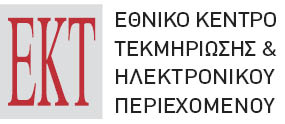Το τεκμήριο παρέχεται από τον φορέα :
 National Documentation Centre (EKT)
National Documentation Centre (EKT)
Αποθετήριο :
National Archive of PhD Theses
| ΕΚΤ ΕΑΔΔ

